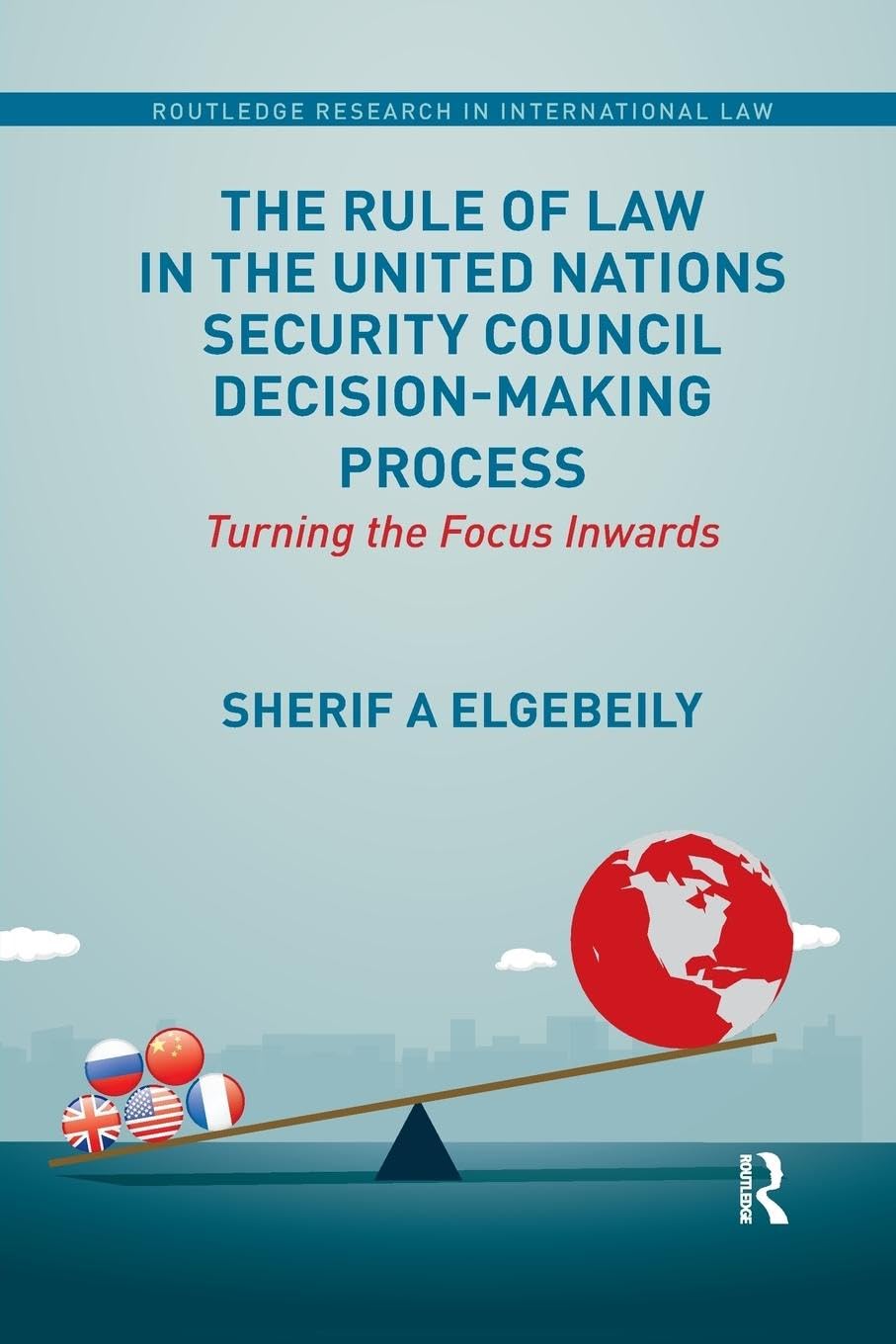The Rule of Law in the United Nations Security Council Decision-making Process: Turning the Focus Inwards
The Rule of Law in the United Nations Security Council Decision-making Process: Turning the Focus Inwards is backordered and will ship as soon as it is back in stock.
Couldn't load pickup availability
Genuine Products Guarantee
Genuine Products Guarantee
We guarantee 100% genuine products, and if proven otherwise, we will compensate you with 10 times the product's cost.
Delivery and Shipping
Delivery and Shipping
Products are generally ready for dispatch within 1 day and typically reach you in 3 to 5 days.
Book Details
-
Publisher: Routledge
-
Author: Sherif Elgebeily
-
Language: English
-
Edition: 1st Edition
-
ISBN: 9780367193409
-
Pages: 222
-
Cover: Paperback
-
Dimensions: 9.2 x 6.1 x 0.5 inches
About the Book
The Rule of Law and the UN Security Council's Decision-Making Process examines the decision-making framework of the UN Security Council, focusing on the necessity of incorporating a rule of law framework into its processes. The Security Council, responsible for maintaining international peace and security, has the unique authority to authorize military intervention and impose international sanctions. However, its decision-making procedures have often been criticized for being obscure and politically biased.
Despite the rule of law being a prominent agenda item for the Security Council for over a decade, and the 2012 UN General Assembly declaration asserting its internal application, the Security Council has yet to adopt a comprehensive rule of law framework to govern its decisions. This book addresses this gap by explaining the importance of a rule of law framework for the Security Council and analyzing existing literature and UN documents related to the domestic and international rule of law.
Elgebeily identifies eight core components that form a tailored rule of law framework for the Security Council, and rigorously evaluates its decision-making process since the end of the Cold War. The book critically examines instances where the rule of law has been undermined or neglected and argues that there is a pressing need for external regulation and judicial review of the Security Council’s decisions.
This book is essential reading for scholars of international law, international relations, and anyone interested in understanding the functioning and challenges of the UN Security Council.





